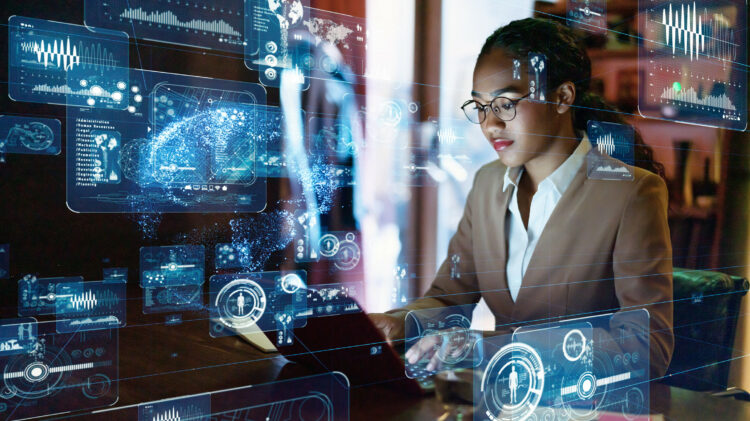Technology has changed every aspect of our daily lives. And its impact on the economy is undeniable. From automation and artificial intelligence to digital banking and e-commerce. Advancements in technology continue to shape how businesses operate. And how people work, spend, and invest. Even industries like sports betting have evolved with technology. making online platforms more accessible to millions of users. But how exactly has technology influenced the modern economy?
1. The Rise of Automation and Artificial Intelligence
Automation and artificial intelligence (AI) are transforming industries across the world. Many companies are now using AI-powered systems. to improve efficiency, reduce costs, and enhance customer service. For example:
Manufacturing: Robots and automated machines have replaced human workers in many factories. Leading to faster production times and lower costs.
Customer Service: AI chatbots are now used to answer customer questions, process orders. And provide support without the need for human intervention.
Healthcare: AI is helping doctors diagnose diseases more and develop personalized treatment plans.
While automation has created new job opportunities in tech-related fields. It has also led to concerns about job losses in traditional industries. As the economy continues to evolve, workers need to adapt and develop new skills.
2. The Growth of E-Commerce and Digital Payments
Online shopping has become a major part of the global economy. Companies like Amazon and eBay have revolutionized how we buy and sell products. Consumers can now shop from anywhere in the world. With a few clicks, leading to massive growth in e-commerce.
The rise of digital payments has also played a crucial role in this shift. Services like PayPal and cryptocurrency transactions have made online payments more secure. Businesses that adopt can attract customers and expand their reach beyond physical locations.
3. The Gig Economy and Remote Work
Technology has also given rise to the gig economy. Where people work as freelancers or independent contractors instead of traditional full-time employees. Platforms like Uber, Fiverr, and Upwork allow workers. To find short-term jobs in various fields, from transportation to graphic design.
Remote work has also become more common, especially after the COVID-19 pandemic. Video conferencing tools like Zoom and Microsoft Teams. Allow employees to work from home, reducing the need for office space and commuting. Many companies are now embracing hybrid work models. Where employees split their time between home and office work.
4. Financial Technology (FinTech) and Banking Innovation
The financial industry has undergone significant changes due to technology. FinTech companies are disrupting traditional banking by offering innovative services such as:
Mobile banking apps that allow users to manage their finances from their smartphones.
Cryptocurrency and blockchain technology, which provide decentralized alternatives to traditional currencies.
Robo-advisors that use AI to help investors make smart financial decisions.
FinTech has made banking more accessible. Especially in developing countries where traditional banks may not have a strong presence. But, it also raises concerns about cybersecurity and financial regulations. As digital transactions become more common.
5. The Impact of Social Media on Business and Marketing
Social media platforms like have changed how businesses reach their customers. Companies can now market their products to consumers through influencer partnerships.
Social media also provides businesses with valuable data about consumer preferences. Allowing them to create personalized marketing campaigns. It has led to challenges, such as concerns over data privacy and the spread of misinformation.
6. The Role of Renewable Energy and Sustainability
As technology advances, there is a growing focus on sustainability and renewable energy. Many businesses are investing in green technologies. To reduce their carbon footprint and meet environmental regulations.
For example:Solar and wind power are becoming more affordable. And used as alternatives to fossil fuels.
Electric vehicles (EVs) are gaining popularity. With companies like Tesla leading the way in sustainable transportation.
Smart grids and energy-efficient technologies help reduce waste and lower electricity costs.
Governments and businesses are now prioritizing sustainability. To create a cleaner and more resilient economy for the future.
7. The Challenges and Risks of Technological Advancements
While technology has many benefits, it also comes with challenges. Cybersecurity threats, data privacy issues, and job displacement. Due to automation are some of the biggest concerns facing the modern economy.
Cybersecurity threats: As more transactions move online, there is a risk of cyberattacks and data breaches.
Job displacement: Automation and AI are replacing many traditional jobs. Forcing workers to reskill or switch careers.
Digital divide: Not everyone has equal access to technology. Leading to economic inequality between developed and developing regions.
To address these challenges, governments and businesses must work together. To create policies that protect workers. Also, improve cybersecurity, and ensure that technological benefits are accessible to everyone.













